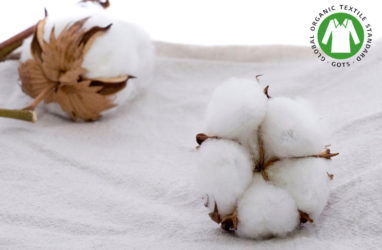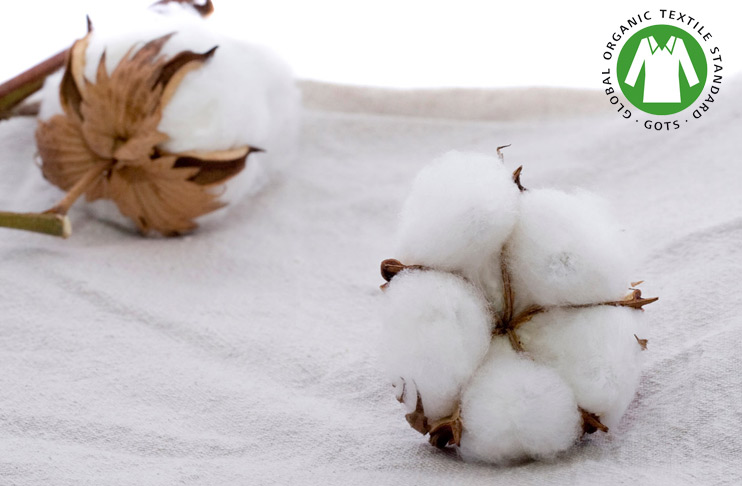The number of facilities certified to the Global Organic Textile Standard (GOTS) demonstrated a substantial increase, from 3,814 facilities in 2015 to 4,642 facilities in 2016. Global Organic Textile Standard certified facilities are now located in 63 (68 in 2015) countries around the world. Growth is continuously, evenly spread across all market segments including the mass market and the big brands. Global Organic Textile Standard certification covers the processing of organic fibres along the entire supply chain from field to finished product.

Countries or regions with the largest increase in Global Organic Textile Standard certification in 2016 are (in rank order); Bangladesh (+121), China (+68), Italy (+54), Germany (+41); India (+47) and Pakistan (+30). The top ten countries in terms of total number of certified entities were: India (1,488), Turkey (423), Germany (347), Bangladesh (331), China (269), Italy (195), Pakistan (172), Portugal (96), Korea (61) and Japan (58).
“The significant growth in numbers of Global Organic Textile Standard certified facilities shows the willingness of more and more decision makers not only to drive change by complying with the strict GOTS criteria but also to prove this change by undergoing an independent third party certification”, notes Herbert Ladwig, Global Organic Textile Standard Managing Director.
To date the 18 Global Organic Textile Standard accredited independent Certification Bodies report more than 1.4 million people in 4,354 (out of the actual 4,642) working in Global Organic Textile Standard certified facilities.
“The increasing market acceptance is a result that GOTS delivers solutions for sustainability based problems for both; business need for risk management and credibility and consumers need for transparency”; says Claudia Kersten, GOTS Director Marketing and Finance.
New GOTS Version 5
For Global Organic Textile Standard 2016 was a revision year; resulting in the release of GOTS Version 5.0 on 1st March 2017. The key changes in brief; The use of Viscose and Modal (additional fibre content) is now restricted to 10% (25% for sportswear and socks). Lyocell fibre made from certified organic of FSC sources may still be used up to 30% ; because of its more sustainable manufacturing processes. For the first time Global Organic Textile Standard will allow “Combined Products”; such as prams with textile fabrics, bassinets, car seats or furniture with textile fabric upholstery; to have certified and labelled textile components.
Regarding the GOTS social criteria an explicit section on Ethical Business Behaviour including a corruption ban was added; based on the UN Global Compact Principles. The mandatory Global Organic Textile Standard Social Compliance Management System for the first time includes; guidance on the use of tools such as SAI Social Fingerprint™ to help companies measure and improve their social performance. GOTS Version 5.0, the Manual for Implementation Version 5.0 and a list of relevant changes can be found on here.
New GOTS Representatives
In 2016 seven regional Representatives were working on Global Organic Textile Standard promotion. Three new Regional Representatives have been appointed; Lina Pfeifer in Germany, Austria and Switzerland, Lori Wyman in North America; and Elif Yaraşık was appointed the first Regional Global Organic Textile Standard Representative in Turkey. Given the fact that Turkey is the country with the second most Global Organic Textile Standard certified facilities worldwide it is a very important sourcing market.
Detailed information about 2016 Global Organic Textile Standard activities can be found in the Global Organic Textile Standard Annual Report 2016, available for download from today on.

